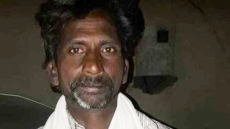For most Indians, tsunami became a household word after the 2004 disaster that pounded the country's eastern coast and killed several thousands.
But researchers at the National Institute of Oceanography (NIO) in Goa have found that ancient Indians of the Harappan settlement (some 5,000 years ago) were aware of tsunamis and had taken measures to protect themselves.
Reporting this in the "Current Science" journal, they say this conclusion is based on their new interpretation of the extraordinarily massive walls -- of thickness up to 18 metres -- found at Dholavira, a Harappan city in Gujarat.
Dholavira is the second-largest Harappan settlement known in India and, perhaps, the best-planned Harappan city with several divisions and many new features hitherto unknown, they say.
According to their report, the architectural framework of Dholavira comprises a castle, a middle town and a lower town confined within massive walls, "making it a unique fortified settlement".
The presence of extremely thick protective walls implies that the Dholavirans were probably aware of the magnitude of destruction caused by tsunami waves, says the report. According to the NIO team, the ancient Indians would not have built these huge walls for protection against floods or military invasion by enemies since these threats did not exist then.
Dholavira is located on the banks of small water channels -- Mansar in the north and Manhar in the south -- the researchers say. "Therefore, it is highly unlikely that these channels posed any flood-related risk to the people since the elevation of Dholavira settlement is sufficiently high".
The possibility that these walls were built for defensive purpose was also ruled out since the only weapons available during the Harappan days were "sling shots and bows and arrows". Even the Great Wall of China is only about nine metres thick at the base and tapers to 3.7 metres at the top.
On the other hand, being close to the sea, Dholavira could have been vulnerable to oceanic calamities. The sea-level changes are well-documented for the western coast of India and, 4,000 years ago, the sea level was higher than at present.
"Being on the Makran coast, the area is prone to tsunami-like events," the researchers say and point out that simulation studies have concluded that tsunami wave height along the Gujarat coast ranges from 2 to 10 metres.
"There is a traditional history of tsunami waves and strong storms hitting the Gujarat coast," says the report. "A 3.5 metre high tsunami wave reportedly hit the Gujarat coast about 2,000 years ago."
The Harappan Indians were apparently aware of this threat and "therefore we hypothesise that the massive walls of the Dholavira might have been a protective measure against possible tsunamis," the researchers say.




